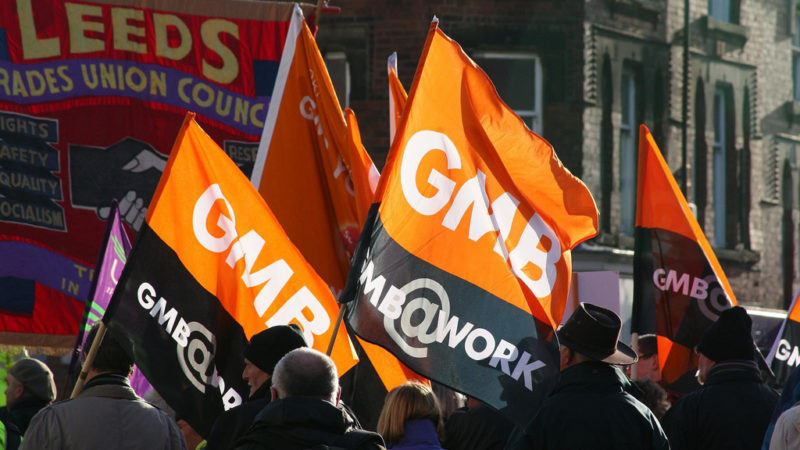
When LabourList asked for some words on the last year for HeartUnions week, I thought ‘where to start…?’. It’s hard to step back and reflect when we’re still so deep in the thick of it. As national secretary for public services at GMB, I’ve spent my pandemic with care workers, schools support staff, local government workers, NHS staff, our key workers.
I’ve listened to harrowing cases of workers being left without personal protective equipment and contracting Covid, of outsourced workers tiered when it came to protection. And there’s a deep inequality to this pandemic. We were told that this virus doesn’t discriminate, but the effects clearly do.
I sincerely believe that when the history books are written, government failure to address the wholly inadequate state of our social security system and the rate of statutory sick pay will be seen to have produced a public health disaster of massive proportions.
We forced U-turn after U-turn throughout the government’s shambolic handling of this crisis. From the furlough scheme to rigorous risk assessments of workplaces with the aim of keeping our members safe and to support any future legal action we might need to take, to key worker vaccinations: some fights we won, some we’re still fighting, but we’ve seen the trade union movement step up.
But as trade unionists, we know we can’t depend on the government to protect us. While we fight politically for change, our bread and butter is organising on the ground, workplace by workplace. Every day, our reps have been taking on employers who won’t implement social distancing or provide safe transport and facilities; fighting not just for the minimum sick pay but real sick pay. That’s the everyday of trade unionism that often goes unrecognised. It’s who we are, it’s at the heart of what we do and it’s never been more important.
Facebook Live and Zoom weren’t part of the trade union dictionary 12 months ago, but now we’d be lost without them. We have more reps communicating on WhatsApp than ever before, building stronger relationships and sharing best practice. We know how to meet, train, organise and win, all without one physical meeting, but I for one can’t wait to be back to seeing people face-to-face and organising alongside them.
The last 12 months have changed us all and our country profoundly. They have changed how we organise and represent our members, but they’ve started a bigger process of change in GMB as a union, too. It’s hard to avoid the elephant in the GMB when we talk about the last 12 months. Our union was rocked early in the pandemic by the resignation of our general secretary and the subsequent Monaghan report. It was a report that made very tough reading. But courageous people are speaking out, and they will help reshape our union.
From adversity and strife, we can build change and something better. That is my sincere hope: transformational change so that we are seen to live by the values we profess, and because we have to be match-fit for this coming year. A decade of austerity left us unprepared for this crisis; more austerity will not fix our economy, yet history tells us Tory ideological fanaticism trumps that fact. We’re going to be in the fight of our lives on public spending. As a movement, we must be clear about what we can expect.
Only investment in our people, communities, public services and industries will grow our economy and start to address the growing standard of living and personal debt crisis. Investing in renewables and energy infrastructure, creating skilled jobs while lowering emissions will help realise a new Britain, and a new economy where yards bustle with work and the communities that depend on them thrive.
Post-Brexit, we need a refocus on UK manufacturing as the supporting backbone of British employment must spark a renaissance for our industries. Investment in industry, investment in working people, investing and organising in communities to bring desperately needed improvements through the leverage of collective organising to those trying to scrape by on hand-to-mouth wages.
We’ll hold the government’s feet to the fire but, just as importantly, we’ll organise. Because not everyone has had a bad pandemic. Companies have made billions from this crisis. Through our collective strength, organising in our communities and workplaces, we must fight to end the hand-to-mouth, live-to-work not work-to-live existence of millions of working people, and together we have to end the privatisation of our public services.
As we mark HeartUnions week, I leave you with this. The vast majority of people who are not in a union today have never been asked to join. Now is the time to ask, because as Labour Party members, we know that through collective endeavour we will achieve more than we ever achieve alone.




More from LabourList
‘Turning public services around: Haringey’s story of child protection’
‘Can Labour turn the green tide back to red?’
Tom Belger column: ‘Why is Labour making migrant exploitation easier?’